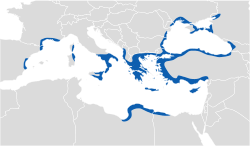**Origins of Viticulture in Ancient Greece:**
– Viticulture traces back to the late Neolithic period in Greece
– Influence of Minoan civilization from Egyptian winemaking methods
– Grapes, olives, and grain were essential crops
– Spread of viticulture by Mycenaeans in the Aegean Sea
– Cultural, religious, and economic importance of wine in the Mycenaean period
**Colonization, Trade, and Spread of Greek Wine:**
– Greek city-states established colonies in the Mediterranean
– Introduction of viticulture to regions like Sicily, southern Italy, and France
– Athens as a significant wine market
– Trade of Greek wine with regions like Crimea, Egypt, and Etruria
– Archaeological evidence of Greek wine trade reaching Gaul
**Viticulture and Winemaking Innovations in Ancient Greece:**
– Cultivation of vines like ‘hemeris’ and their mythological significance
– Documentation of Greek innovations in viticulture by Theophrastus
– Influence of Greek techniques on modern grape varieties
– Mysticism in Greek viticulture practices
– Innovations in winemaking processes like straw wine production and resin addition
**Cultural Significance and Rituals of Wine in Ancient Greece:**
– Central role of wine in Greek culture and economy
– Depiction of grape clusters and wine cups on Greek coins
– Rituals like burying a split rooster for vineyard protection
– Early winemaking techniques and flavor enhancements with herbs and resin
– Importance of well-stored and aged wines, often diluted with water or snow
**Role of Wine in Greek Culture and Society:**
– Wine’s importance in religious, social, and medical contexts
– Active Cult of Dionysus in Greek society
– Inclusion of wine in festivals, theatrical performances, and medicinal studies
– Emphasis on moderation in wine consumption in Greek writings
– Significance of wine in mythological, mystical, and literary contexts
The influence of wine in ancient Greece helped ancient Greece trade with neighboring countries and regions. Many mannerisms and cultural aspects were associated with wine. It led to great change in Ancient Greece as well.

The peoples of the Mediterranean began to emerge from barbarism when they learned to cultivate the olive and the vine.
The ancient Greeks pioneered new methods of viticulture and wine production that they shared with early winemaking communities in what are now France, Italy, Austria and Russia, as well as others, through trade and colonization. Along the way, they markedly influenced the ancient European winemaking cultures of the Celts, Etruscans, Scythians and ultimately the Romans.
